Turmeric contains bioactive compounds with powerful medicinal properties
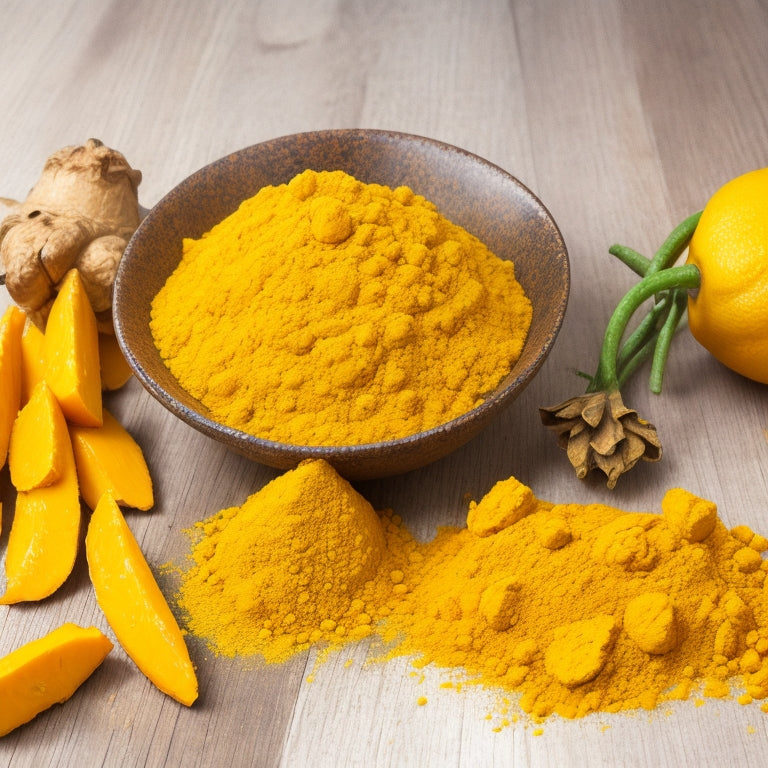
Turmeric is the spice that gives curry its yellow color. It has been used as a spice and medicinal plant in India for thousands of years.
What is the difference between turmeric and curcumin?
Science has begun to support what Indians have known for a long time: Turmeric does indeed contain polyphenols with medicinal properties. The main compound is called Curcumin. Curcumin is the main active component of turmeric. It has powerful anti-inflammatory effects and is a very strong antioxidant.
However, turmeric is not very high in curcumin. Approximately 3% of weight. Most studies on this herb use turmeric extract, which itself contains primarily curcumin, often in doses of more than 1 gram per day. It's difficult to achieve these levels just by using turmeric spice in food. Therefore, if you want to experience the full effects, you need to take a supplement that contains a high amount of curcumin.
Unfortunately, curcumin is poorly absorbed into the bloodstream. It helps to eat it with black pepper, which contains piperine, a natural substance that increases curcumin absorption by 2,000%. The best curcumin supplements contain piperine, which greatly increases its effectiveness.
Curcumin is also fat-soluble, so taking it with a fatty meal may be a good idea.
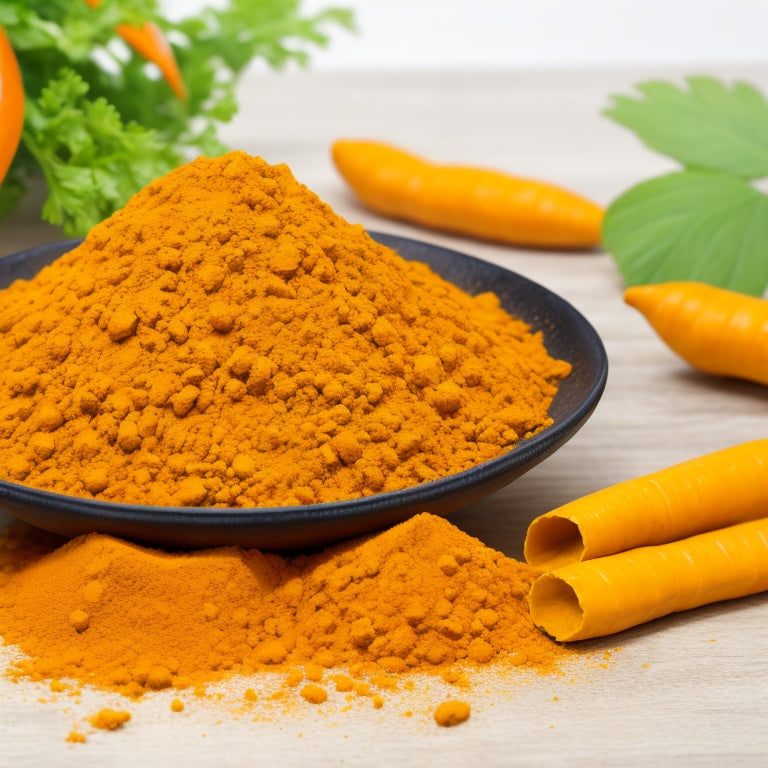
Curcumin is a natural anti-inflammatory compound
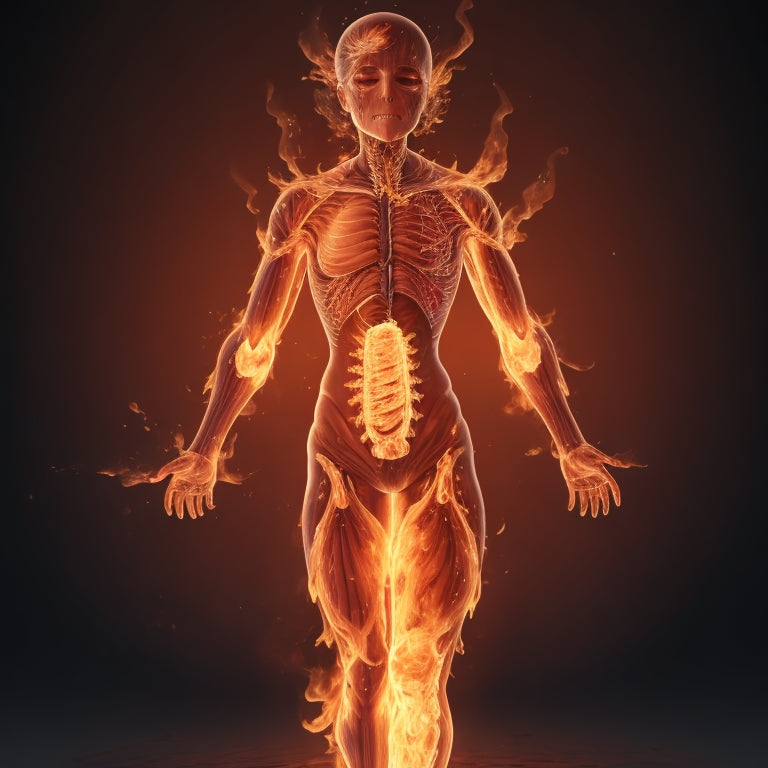
Inflammation is the immune system's response to harmful stimuli, such as pathogens, damaged cells, toxic compounds, or radiation, and works by eliminating the harmful stimuli and initiating the healing process. Therefore, inflammation is a defense mechanism critical to health. Although acute, short-term inflammation is beneficial, it can become a serious problem when it becomes chronic and inappropriately attacks the body's own tissues. Scientists believe that chronic low-level inflammation plays an important role in nearly all chronic Western diseases. These include heart disease, cancer, metabolic syndrome, Alzheimer's disease and various degenerative diseases. Therefore, anything that helps fight chronic inflammation is potentially important in preventing or even treating these diseases. Curcumin has strong anti-inflammatory effects. In fact, it's so powerful that it matches the efficacy of some anti-inflammatory drugs without the side effects.
It blocks NF-kB, which enters the cell nucleus and turns on genes related to inflammation. NF-kB is thought to play a major role in many chronic diseases. The key takeaway is that curcumin is a bioactive substance that fights inflammation at a molecular level.
How much turmeric should be taken to reduce inflammation?
In general, the usual recommended dosage of turmeric is 500 mg to 2,000 mg. This is based on the doses used in the studies. Look for products that list the actual amount of curcumin in the supplement for best results. Due to the risk of side effects, it is not recommended to take more than 8 grams of curcumin per day.
Is turmeric as effective as ibuprofen in treating inflammation?
Two studies found turmeric to be more effective than ibuprofen in treating postoperative pain and swelling and delayed onset muscle soreness. Doses for both are 1,500-5,000 mg per day.
How long does it take for turmeric to start reducing inflammation?
Unfortunately, turmeric doesn't provide a quick fix, so you'll need to take it daily to see results. If you're wondering how long it takes for turmeric to work, this may vary from person to person. However, if taken daily, you should usually start to notice improvements in about 4-8 weeks.
Turmeric greatly increases the body’s antioxidant capacity
Oxidative damage is considered a mechanism of aging and many diseases. It involves free radicals, highly reactive molecules with unpaired electrons. Free radicals readily react with important organic substances such as fatty acids, proteins or DNA. The main reason why antioxidants are so beneficial is that they protect your body from free radicals.
Curcumin is a potent antioxidant that neutralizes free radicals due to its chemical structure. Additionally, curcumin enhances the activity of the body’s own antioxidant enzymes. In this way, curcumin fights free radicals once or twice. It blocks them directly and then stimulates the body's own antioxidant defenses.
Curcumin may improve brain function and reduce the risk of encephalopathy
Previously, it was thought that neurons were unable to divide and reproduce in early childhood. However, it is now known that this does happen. Neurons are able to form new connections, but in certain areas of the brain, they can also multiply and increase in number. One of the main drivers of this process is brain-derived neurotrophic factor (BDNF), a growth hormone that acts in the brain. Many common brain diseases are linked to reduced levels of this hormone, including depression and Alzheimer's disease. Interestingly, curcumin can increase levels of BDNF in the brain. By doing so, it can effectively delay or even reverse many brain diseases as well as age-related decline in brain function. It can also improve memory and make you smarter, which seems logical considering its effect on BDNF levels. However, controlled studies in human populations are needed to confirm this.
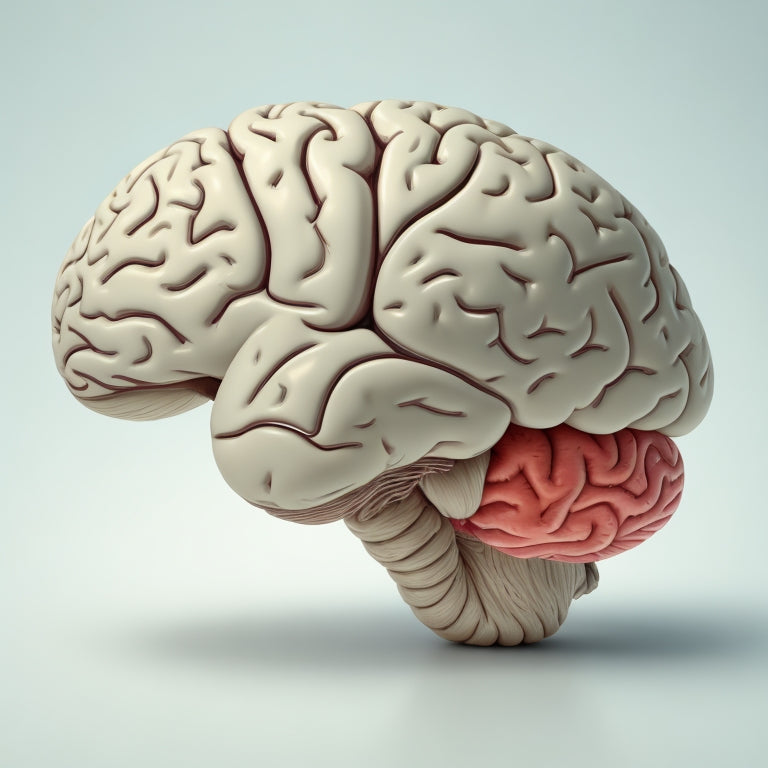
Curcumin should reduce the risk of heart disease
Heart disease is the number one cause of death in the world. Researchers have studied it for decades and learned a lot about why. Not surprisingly, heart disease is incredibly complex, and all sorts of things contribute to it. Curcumin may help reverse many steps in the heart disease process.
Endothelial dysfunction is known to be a major driver of heart disease and involves the inability of your endothelium to regulate blood pressure, blood clotting, and various other factors. Several studies have shown that curcumin improves endothelial function. One study found it was as effective as exercise, while another showed it was as effective as the drug atorvastatin. Additionally, curcumin reduces inflammation and oxidation, which also play a role in heart disease.
One study randomly assigned 121 people undergoing coronary artery bypass surgery to take a placebo or 4 grams of curcumin on several days before and after the surgery. The curcumin group had a 65% lower risk of having a heart attack in the hospital.
What effect does turmeric have on arteries and blood vessels?
Early research suggests turmeric may help prevent atherosclerosis, the buildup of plaque that can clog arteries and lead to heart attack or stroke. In animal studies, turmeric extract can lower cholesterol levels and prevent LDL (bad) cholesterol from building up in blood vessels.
The driving mechanism of curcumin's protective process may be related to the regulation of macrophages, vascular smooth muscle cells (VSMC) and endothelial cells (EC) surrounding atherosclerotic plaques. The protective effect was significantly related to the dose of curcumin, but further studies on optimal dose setting are needed to confirm the results.

Turmeric may help prevent cancer
Cancer is a terrible disease characterized by uncontrolled cell growth. Cancer comes in many different forms, but still has a lot in common. Some of these appear to be affected by curcumin supplements. Curcumin has been studied as a beneficial herb in the treatment of cancer and has been found to affect the growth, development and spread of cancer at a molecular level. Research shows it can promote the death of cancer cells and reduce angiogenesis (the growth of new blood vessels in tumors) and metastasis (the spread of cancer). Multiple studies have shown that curcumin can reduce the growth of cancer cells in the laboratory and inhibit the growth of tumors in test animals. Whether high doses of curcumin (preferably an absorption enhancer like piperine) can help treat cancer in humans has yet to be properly studied.
There is evidence that it can prevent cancer from developing in the first place, especially digestive system cancers like colorectal cancer. In a 30-day study of 44 men with colon lesions that sometimes turn into cancer, 4 grams of curcumin per day reduced the number of lesions by 40%. Maybe curcumin will be used one day alongside regular cancer treatments. It’s too early to say for sure, but it looks promising and is being studied intensively.
Curcumin may help prevent and treat Alzheimer's disease
Alzheimer's disease is the most common neurodegenerative disease in the world and the leading cause of dementia. Unfortunately, there is no good treatment for Alzheimer's disease. Therefore, the most important thing is to prevent it from happening.
Since curcumin has been shown to cross the blood-brain barrier, there may be good news on the horizon. Inflammation and oxidative damage are known to play a role in Alzheimer's disease, and curcumin has beneficial effects on both. Additionally, Alzheimer's disease is primarily characterized by the accumulation of protein tangles called amyloid plaques. Research shows curcumin can help clear up these plaques. Whether curcumin can actually slow or even reverse the progression of Alzheimer's disease in people is unclear and requires proper research.

Arthritis patients respond very well to curcumin supplements
Arthritis is a common problem in Western countries. There are several different types, most of which involve inflammation of the joints. Given that curcumin is a potent anti-inflammatory compound, it makes sense that it could help treat arthritis. Several studies show this to be true. In one study of patients with rheumatoid arthritis, curcumin was more effective than anti-inflammatory drugs. Many other studies have looked at the effects of curcumin on arthritis and noted improvements in various symptoms.
Research shows that curcumin has antidepressant effects
Curcumin has shown promise in treating depression. In a controlled trial, 60 patients with depression were randomly divided into three groups. One group was given Prozac, another a gram of curcumin, and a third group was given both Prozac and curcumin. After 6 weeks, curcumin caused similar improvements to Prozac. The group taking both Prozac and curcumin fared best. According to this small study, curcumin is as effective as antidepressants. Depression is also associated with reduced levels of brain-derived neurotrophic factor (BDNF) and shrinkage of the hippocampus, a brain region that plays a role in learning and memory. Curcumin increases levels of BDNF, possibly reversing some of these changes. There is also some evidence that curcumin can enhance the brain neurotransmitters serotonin and dopamine.

Curcumin may help slow down aging and fight age-related chronic diseases
If curcumin does help prevent heart disease, cancer and Alzheimer's disease, it would have clear benefits for longevity. As a result, curcumin has become extremely popular as an anti-aging supplement. But given that oxidation and inflammation are thought to contribute to aging, curcumin can do much more than just prevent disease.

Side effects
Curcumin is the main element that makes turmeric a superfood. From healing pain to boosting immunity to preventing infections, this spice has the answer for it all. However, excessive intake of this spice can also affect the body in various ways.
What are the side effects of taking curcumin?
Studies using high doses of curcumin have reported some mild side effects, including nausea, diarrhea, headache, rash, and yellow stool. Using curcumin with piperine (black pepper extract) may cause adverse drug reactions because piperine greatly increases intestinal permeability.
Who should not use turmeric?
Although turmeric is considered safe for most people, some people may need to avoid its use.
These situations require extra caution:
- Pregnancy and breastfeeding: There is not enough research to determine whether turmeric supplements are safe for people who are pregnant or breastfeeding.
- Gallbladder disease: According to some older research, turmeric may cause the gallbladder to shrink, making symptoms worse. People with liver or bile duct problems should not take turmeric supplements because they can increase bile production.
- Kidney stones: High in oxalates, which can bind to calcium and cause kidney stones to form.
- Bleeding disorders: High doses of turmeric may have a blood-thinning effect. It may worsen bleeding problems by slowing down the blood's ability to clot. If taken with prescription anticoagulants, the risk of dangerous bleeding may be increased.
- Diabetes: May cause blood sugar levels to drop too low.
- Iron deficiency: May interfere with iron absorption.
- Turmeric supplements may interact with certain medications, such as blood thinners and diabetes medications.
However, in this case, turmeric in the amounts typically consumed in food appears to be safe.
Why is turmeric strictly prohibited for people with kidney disease?
This is because the curcumin in turmeric contains high amounts of oxalates, which can increase the risk of kidney stones and interfere with the function of this vital organ. In addition, curcumin has thermal properties, which are often associated with diarrhea, indigestion, etc. Apart from this, excessive intake of turmeric can lead to blood thinning as it helps reduce blood clotting. Here's how excessive turmeric intake can affect liver health.
Does turmeric affect liver health?
Turmeric contains curcumin, which helps reduce inflammation and may help slow the progression of fibroids. In addition to this, turmeric’s anti-cancer properties make it good for the liver, but only if consumed in moderation. According to liver function studies published by the National Library of Medicine, excessive amounts of turmeric are associated with lower rates of transient serum enzyme elevations.
How to get curcumin naturally in your diet?
The most convenient way is to buy turmeric powder or turmeric root.
Other members of the ginger family contain curcumin, such as mango ginger, which contains curcumin, but in much smaller amounts than in turmeric.
Is turmeric powder curry?
Curry powder and curry dishes may also be a source, as it is actually a mixture of many spices. Curry powder can be made from a combination of different spices, but usually includes cumin, ginger, black pepper, and sometimes cinnamon.
Storage
There is no need to store turmeric powder in the refrigerator.
Properly storing turmeric powder in a cool, dark, airtight container away from moisture and heat ensures its freshness and potency and maintains its vibrant color, flavor and health benefits over the long term.
Signs of turmeric powder going bad include discoloration, odor, clumping, loss of aroma and flavor, and the presence of mold or insects. Discard any powder showing these signs.
Is it okay to eat turmeric every day?

The Joint FAO/WHO Expert Committee on Food Additives (JECFA) determines body weight as 0 to 1.4 mg per pound (0 to 3 mg per kilogram of body weight) Acceptable daily intake of curcumin.
French Agency for Food, Environmental and Occupational Health and Safety (ANSES)
The daily intake of curcumin should not exceed 2,000 mg. And a healthy intake of at least about 500 mg must be ensured.
When taken by mouth: Turmeric is probably safe for short-term use. Turmeric products that provide up to 8 grams of curcumin per day appear to be safe when used for up to 2 months, and turmeric products that provide up to 3 grams of curcumin per day appear to be safe when used for up to 3 months.
While there is no official consensus on effective doses of turmeric or curcumin, the following doses have been used in research with promising results
- Osteoarthritis: Take 500–1,500 mg of turmeric daily for 3 months.
- For itchy skin: Turmeric 500 mg 3 times daily for 2 months.
- For ulcerative colitis: 100–10,000 mg of turmeric extract daily.
Long-term use of high doses of turmeric and curcumin is not recommended due to a lack of research confirming their safety.
What is curcumin C3?
Curcumin C3 Complex is an extract obtained from the rhizome (root) of the plant Curcuma longa (also known as Curcuma longa). Curcumin C3 Complex is the most clinically studied natural anti-inflammatory and antioxidant with numerous health benefits.
Conclusion
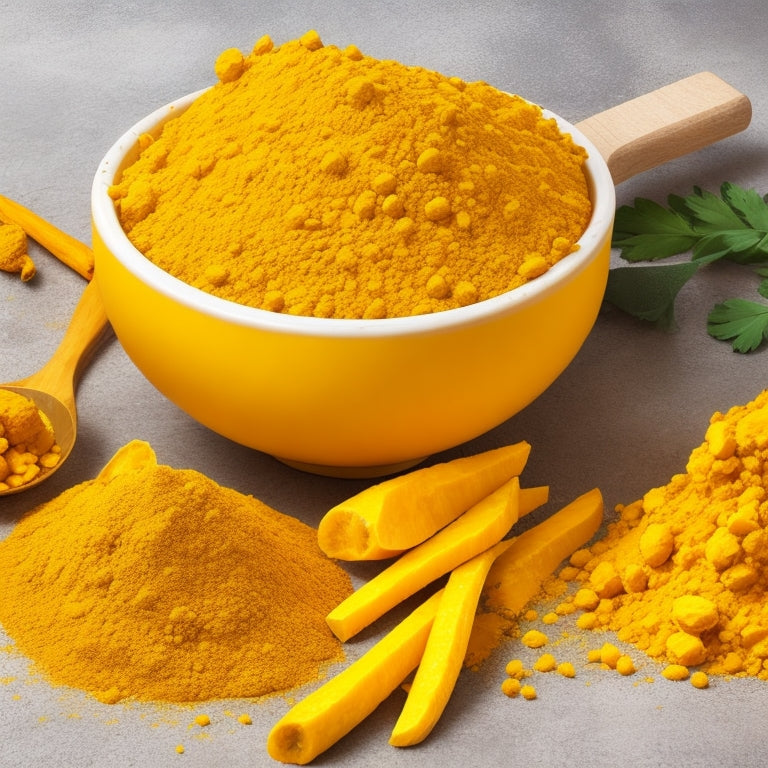
Turmeric, especially its most active form curcumin, has many scientifically proven health benefits, such as the potential to prevent heart disease, Alzheimer's disease and cancer. It is a potent anti-inflammatory and antioxidant and may also help improve symptoms of depression and arthritis. It is recommended to find products containing BioPerine (the brand name of piperine), which increases curcumin absorption by 2,000%. Without this substance, most curcumin would simply pass through your digestive tract.














